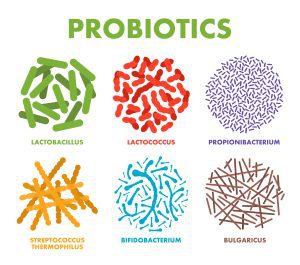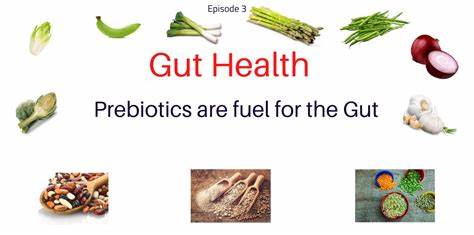The universe within us, known as the gut microbiome, is a complex and thriving ecosystem teeming with trillions of microorganisms. This intricate community of bacteria, fungi, viruses, and other microbes plays a pivotal role in our well-being. Two key players in maintaining a harmonious gut microbiome are prebiotics and probiotics. In this article, we’ll embark on a journey to comprehend these essential components, unravel their significance for gut health, and explore how they can benefit your overall well-being.
The Gut Microbiome: A Miniature Universe
Before we delve into the realms of prebiotics and probiotics, it’s crucial to understand the significance of the gut microbiome itself. Our digestive system is home to a diverse range of microorganisms, collectively known as the gut microbiome. This intricate community acts as a second brain, influencing everything from digestion to immunity and even our mood.
A balanced and diverse gut microbiome is essential for maintaining good health. When this equilibrium is disrupted, it can lead to a range of health issues, including digestive problems, allergies, and even mental health disorders. This is where prebiotics and probiotics come into play as crucial allies for nurturing the gut.
Probiotics: The Good Bacteria
Probiotics are live microorganisms, mainly beneficial bacteria, that when consumed in adequate amounts, provide health benefits. They are often referred to as “good bacteria” because of their role in maintaining a balanced gut microbiome. Probiotics can be found in various foods, such as yogurt, kefir, sauerkraut, and in the form of dietary supplements.
The main functions of probiotics include:
- Restoring Gut Balance: When the balance of the gut microbiome is disrupted, probiotics can help restore equilibrium by promoting the growth of beneficial bacteria.
- Enhancing Digestion: Some probiotic strains aid in the digestion and absorption of nutrients, which is essential for overall health.
- Boosting Immunity: A significant portion of the immune system resides in the gut. Probiotics can enhance the immune response and protect against harmful pathogens.
- Mood Regulation: Emerging research suggests a link between gut health and mental well-being. Probiotics may play a role in improving mood and reducing symptoms of anxiety and depression.

https://www.caloriecare.com/wp-content/uploads/2019/05/Pro6-1.jpg
Prebiotics: The Fuel for Good Bacteria
Prebiotics, on the other hand, are not living organisms like probiotics but are a type of dietary fiber. They serve as nourishment for the beneficial bacteria in the gut. Prebiotics are naturally found in various foods, including garlic, onions, leeks, bananas, and whole grains. When consumed, prebiotics pass through the digestive system without being digested by human enzymes and arrive in the colon, where they serve as a feast for the good bacteria.
The primary roles of prebiotics include:
- Fueling Beneficial Bacteria: Prebiotics provide a source of energy for the beneficial bacteria in the gut, allowing them to flourish.
- Promoting Microbial Diversity: A diverse gut microbiome is associated with better health outcomes. Prebiotics can help increase the variety of microbes in your gut.
- Enhancing Gut Barrier Function: Prebiotics play a role in strengthening the gut barrier, preventing the entry of harmful substances into the bloodstream.
- Regulating Blood Sugar: Some prebiotic fibers can help stabilize blood sugar levels, which is beneficial for individuals with diabetes or those at risk.
The Symbiotic Relationship
Prebiotics and probiotics are like two sides of the same coin, and when used together, they create a symbiotic relationship that can significantly benefit gut health. Probiotics thrive on the nourishment provided by prebiotics, allowing them to exert their beneficial effects more effectively.
This harmonious collaboration between prebiotics and probiotics is associated with several health advantages:
- Improved Digestion: The combination of prebiotics and probiotics can enhance the absorption of nutrients and promote smoother digestion.
- Stronger Immunity: The immune-boosting effects of probiotics are amplified when they are well-fed by prebiotics.
- Reduced Inflammation: A healthy gut microbiome, nurtured by prebiotics and probiotics, can help reduce inflammation, a common factor in various diseases.
- Mental Well-Being: The gut-brain connection is being increasingly explored, and the combination of prebiotics and probiotics may positively influence mood and cognitive function.
Incorporating Prebiotics and Probiotics into Your Diet
To make the most of these gut-friendly components, consider the following dietary tips:
- Probiotic-Rich Foods: Include yogurt, kefir, sauerkraut, kimchi, and other fermented foods in your diet.
- Prebiotic Foods: Incorporate garlic, onions, leeks, asparagus, and whole grains into your meals.
- Supplements: If your diet falls short of prebiotics and probiotics, consider taking supplements, but consult a healthcare professional first.
- Diversity: Consume a wide variety of foods to promote a diverse gut microbiome, which is associated with better health.

https://justweight.ie/wp-content/uploads/2020/11/Prebiotics-are-fuel-for-the-gut.jpg
In Conclusion: Nurturing Your Gut, Nurturing Your Health
Understanding the roles of prebiotics and probiotics in gut health is a step towards a healthier, more balanced life. These dietary elements are not just a trend; they are essential for maintaining a well-functioning digestive system, strong immunity, and even a happier mood.
Incorporating prebiotic and probiotic-rich foods into your daily diet can be a simple yet effective way to nurture your gut microbiome. With a flourishing gut, you can embark on a journey to better overall health, one meal at a time.












